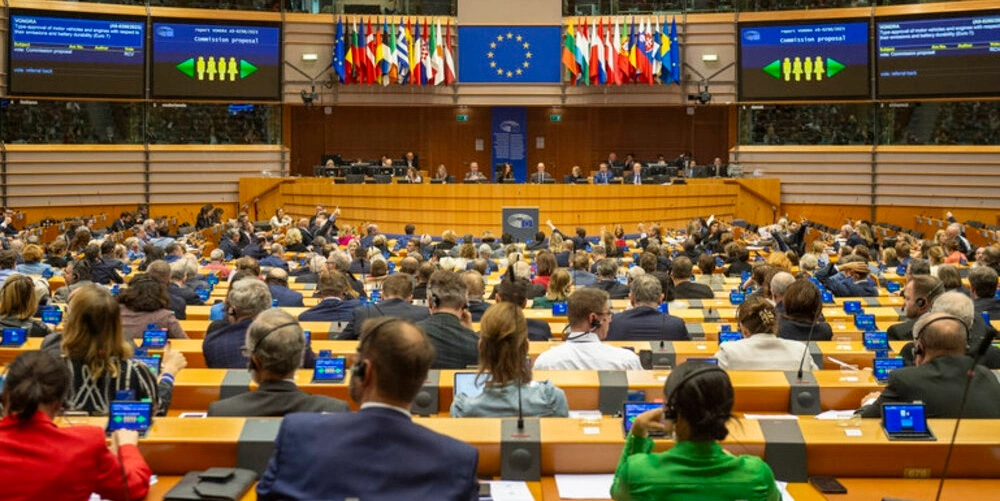In a significant move towards a greener future, the European Parliament has adopted a negotiating position on the revision of EU rules for type approval and market surveillance of motor vehicles, known as Euro 7.
With a vote of 329 in favor, 230 against, and 41 abstentions, the Parliament has set the stage for comprehensive changes in the automotive industry.
The proposed regulation aims to address pressing environmental concerns by updating current limits for exhaust emissions, including nitrogen oxides, particles, carbon monoxide, and ammonia.
Notably, it introduces innovative measures to curb tire and brake emissions while boosting the durability of vehicle batteries.
Members of the European Parliament (MEPs) have expressed agreement with emission levels proposed by the Commission for car pollutants.
They further advocate for a nuanced breakdown of emissions into three categories for light commercial vehicles, based on weight, demonstrating a commitment to tailor regulations to specific vehicle types.
Stricter limits on exhaust emissions, both in controlled laboratory conditions and real-world driving scenarios, are on the table, especially for buses and heavy-duty vehicles.
The Parliament is also seeking to align EU calculation methodologies and emission limits for brake particles and tire abrasion with international standards under development by the United Nations Economic Commission for Europe.
Additional proposed measures include the introduction of an up-to-date environmental vehicle passport (EVP), providing critical information on fuel consumption, battery health, emissions limits, and the results of periodic technical inspections.
Lifetime requirements for vehicles, engines, and pollution control systems are expected to become more stringent.

There is also a proposal to mandate on-board monitoring systems for various parameters, such as excess exhaust emissions, real-world fuel and energy consumption, and traction battery health.
Specific rules for small and ultra-small volume manufacturers are also under consideration.
Commenting on the ambitious proposals, Alexandr Vondra of the European Conservatives and Reformists group, representing the Czech Republic, states:
“We have achieved a balance between environmental goals and the vital interests of manufacturers”.
“Applying environmental policies that harm both the European industry and its citizens would be counterproductive. Through our commitment, we serve the interests of all parties involved and steer clear of extreme positions,” he adds.
Next steps
Looking ahead, the report is set to be adopted during the November 2023 plenary sitting, marking Parliament’s negotiating position with EU governments on the final shape of the legislation.

Background
These developments follow the Commission’s November 2022 proposal for stricter standards on air pollutant emissions from combustion engine vehicles, irrespective of the fuel used.
While current limits apply to cars and vans (Euro 6) and buses, trucks, and other heavy vehicles (Euro VI), the Euro 7 proposal introduces a pioneering focus on non-exhaust emissions, including tire microplastics and brake particles, along with battery durability requirements.
By endorsing this report, the European Parliament responds to citizens’ expectations to promote the purchase of electric vehicles meeting robust durability standards, advance digital and electric infrastructure deployment.
And also reduce the EU’s energy dependence on third countries, aligning with the aspirations outlined in the Conference on the Future of Europe’s Conclusions.







